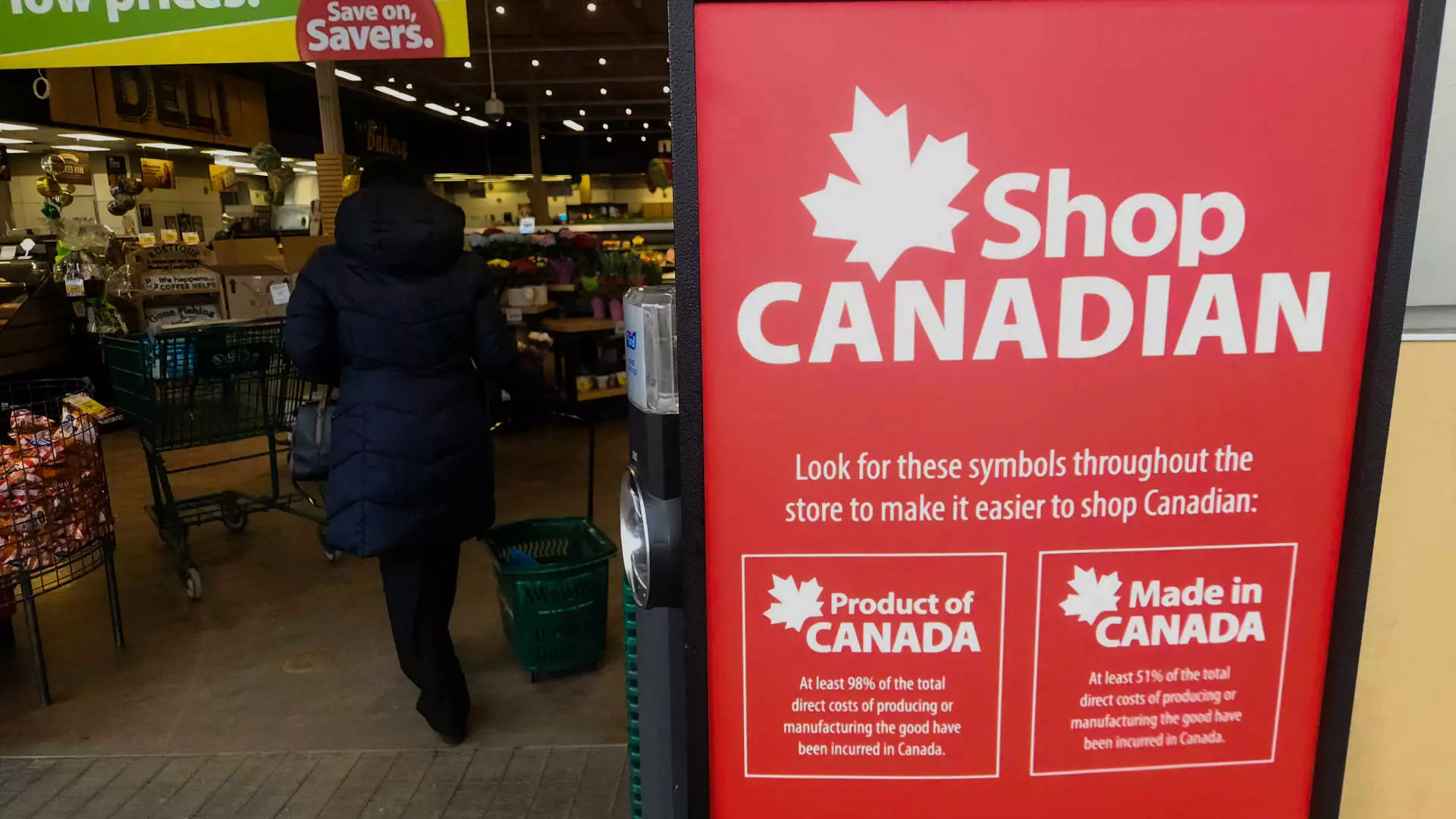In an age where global commerce is becoming increasingly interconnected, the repercussions of imposing tariffs cannot be overstated. The recent trade tensions between the United States and Canada reveal the drastic effects that these tariffs have on small businesses and long-standing relationships. President Trump’s claim that tariffs would rejuvenate American manufacturing and rectify international trade is unfolding into a multifaceted dilemma. For Canadians, this isn’t merely an economic upheaval; it feels like an affront, a betrayal to the closeness shared over decades, resulting in an erosion of trust that could take generations to mend.
The statistics are startling: U.S.-Canada trade topped $762.1 billion in 2024. That’s no small feat for two countries whose economies are so closely knit. Over three-quarters of Canadian products find their way to U.S. shores, while nearly half of Canada’s imports are sourced from the U.S. Enter Trump’s tariffs: a 10% levied on Canadian energy and 25% on other imports from Canada and Mexico. This sweeping measure was not just a matter of policy; it was a stark message. It signaled that U.S. international relationships, previously underpinned by mutual respect and trust, are now susceptible to political whims.
Symbols of Resistance and Economic Identity
In response to these tariffs, Canadian businesses are taking a stand—not merely with words, but through transformed branding strategies. Take Balzac’s Coffee Roasters, for example. By renaming their espresso drink to the “Canadiano,” this chain of cafés not only showcases solidarity but also affirms a national identity, putting Canadian pride front and center. The strategic employment of symbols and branding elucidates an emotional response to tariffs that runs deeper than just business; it’s a declaration of resilience.
Similarly, Your Independent Grocers, under the Loblaw umbrella, are visibly marking products “prepared in Canada” with a maple leaf emblem. This tacit messaging serves not only to educate consumers but also to reinforce loyalty to Canadian goods amid uncertainty surrounding trade relations. The psychological and emotional impact of these tariffs transcends economics; it taps into national pride and identity, compelling consumers to reconsider their purchasing choices.
Direct Economic Consequences: Small Businesses on the Front Lines
Corinne Pohlmann, a key figure in the Canadian Federation of Independent Business (CFIB), poignantly notes the emotional toll that these tariffs inflict on small business owners. With nearly half of CFIB’s 100,000 members engaged in cross-border trade, the consequences are immediate and potentially dire. Businesses are faced with not just increased costs but the laborious task of renegotiating contracts and partnerships. The resentment brewed through these economic adjustments is palpable; it’s not just a financial transaction but a breakdown of trust that had long characterized U.S.-Canada relations.
That said, Pohlmann’s survey indicating that over a quarter of businesses are experiencing heightened interest in Canadian-made products paints a positive note. For some, the tariffs have come not just with challenges, but with opportunity—a chance for domestic products to shine. Yet even amid these silver linings, over half of CFIB members view the U.S. as an unreliable trading partner. The tension between opportunity and mistrust encapsulates the broader narrative of how quickly relationships can shift when political policies undermine foundational economic ties.
Soft Power at Risk
Tariffs function not merely as fiscal tools but as instruments of hard power that can reshape geopolitical landscapes. Historically, U.S.-Canada relations have embodied a partnership based on soft power—an influence built on mutual respect and shared values. But these tariffs threaten to dismantle that legacy. Former Secretary of State Antony Blinken’s concerns about the decline of U.S. soft power in this age of escalating tensions resonate deeply. The U.S. risks not only damaging existing relationships but fostering an environment where allies feel compelled to seek alternatives that might not always align with American interests.
Should these divisions persist, U.S. and Canadian businesses may find it increasingly complex to rebuild what has been frayed. Pohlmann’s insights reflect a haunting truth: even if the Trump administration were to roll back tariffs, the fundamental trust that allows partnerships to flourish may not easily be restored. In an economic environment where relationships are paramount, the cracks formed by tariffs can often be harder to repair than we realize.
This may very well be the turning point for many small businesses caught in this geopolitical maelstrom, leaving them to navigate an uncertain future amid concerns over trade, loyalty, and the emotional weight of these sweeping tariff policies. As these international relationships teeter on the brink, the deeper implications are profound, revealing the importance of trust in commerce and diplomacy alike.

